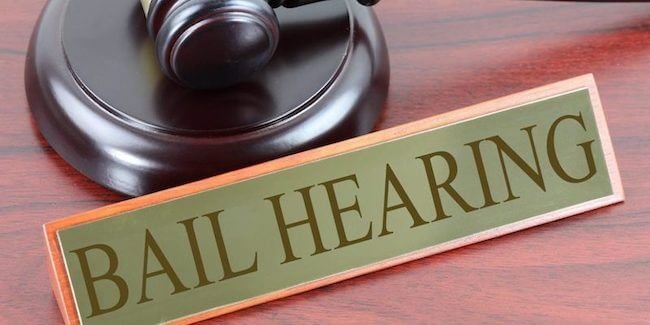“Do I really need a lawyer to represent me?” “Is my assault charge that serious? I barely touched the guy.” “Should I accept the plea deal?”
These are among the myriad of questions that persons facing assault charges tend to ask when trying to figure out whether to retain legal counsel or represent themselves in court. The criminal justice system can be complex to navigate through alone. Defending a criminal charge requires attending multiple court appearances, reviewing complex disclosure, meeting with the prosecutor and Judges(s), along with experience in spotting legal issues unique to each assault case. So, why not substantially improve your odds and retain an experienced lawyer to defend you?
An experienced criminal lawyer has the skills and knowledge to protect your rights and defend you when facing assault allegations. They’ll explain in detail what the charges mean, the potential consequences if found guilty, and the possible defence strategies to alleviate or avoid punishments.
So, when should I contact a criminal lawyer? How do I choose the right assault lawyer? Before we look into these questions and more, let’s take a detailed look into the different types of assault and the provision for the offence by the Criminal Code. We’ll also point out several elements that are crucial in your trial and devising defence strategies.
What is Assault?
In simple terms, an assault occurs when one applies force intentionally to another person without their consent. An assault can also occur when a person merely attempts or threatens to intentionally apply force to another. The criminal charges may come under different names like domestic assault, sexual assault, assault with a weapon, aggravated assault, and assault causing bodily harm.
Section 265(1) of the Criminal Code states that:
- A person commits assault when:
- without the consent of another person, he applies force intentionally to that other person, directly or indirectly;
- he attempts or threatens, by an act or a gesture, to apply force to another person, if he has or causes that other person to believe on reasonable grounds that he has, present ability to effect his purpose; or
- while openly wearing or carrying a weapon or an imitation thereof, he accosts or impedes another person or begs.
Types of Assault
The Canadian Criminal Code breaks down assault into several categories according to the level of severity. Nonetheless, they are all prosecuted under the guidelines of Section 265(1).
All types of assault are treated as hybrid offences, i.e., summary or indictable offences, apart from aggravated assault, which is only tried through indictment.
Some types of assault include:
Simple Assault
Most assault charges fall under simple or common assault. Compared to other categories, simple assaults are minor and rarely result in jail time for first-time offenders. Some examples include fistfights at the club, domestic altercations that turn physical, attempted assaults, threats of assault, and more.
Assault with A Weapon
As the name suggests, this type of assault involves a weapon and may also include some level of physical harm. Threatening or striking someone with an object, or carrying a weapon openly, can result in serious assault charges that carry up to 10 years in prison, among other severe penalties. Note that, in some cases, assault with a weapon is upgradable to aggravated assault.
Assault Causing Bodily Harm
This covers any assaults that result in bodily harm. Such charges carry severe punishments, including fines and up to 10 years in jail. An assault causing severe physical injury can be upgraded to aggravated assault.
Aggravated Assault
As mentioned earlier, aggravated assault is an indictable offence. An assault case with aggravating factors, such as disfigurement, use of a deadly weapon, and endangering the victim’s life, can lead to aggravated assault charges. If found guilty, you could face up to 14 years in jail.
Sexual Assault
Sexual assault charges cover all assault cases that involve the violation of another person’s sexual integrity. These include threats to sexually assault someone, unwarranted physical touching, sexual assault with a weapon, and more. Sentences can include mandatory minimum sentences and inclusion in the national and regional sex offender database.
Domestic Assault
Domestic assault entails any assaults that occur between persons in a current or former domestic relationship, e.g., spouses. In Ontario, the criminal justice system takes such cases more seriously than simple assault offences. A person charged with a domestic assault will often be held for a bail hearing.
When Do I Retain an Assault Lawyer?
As stated earlier, seeking legal representation is essential because a lawyer who’s well-versed in criminal law can defend your rights and ensure the most favourable outcome. Don’t leave your freedom and practically the rest of your life to chance!
Retaining a criminal defence attorney should be done the moment you realize that there are charges against you or an investigation. By engaging a lawyer’s services at the early stages, you can find out more about the assault charges and find a way to mitigate them through a deal if possible. If the negotiations aren’t successful, an experienced lawyer will analyze your case’s details and develop the best possible defence strategies.
Also, if the police arrest you or request you to come in for a conversation, contact an assault lawyer and assert your wish to remain silent until your lawyer is present. Remember, the Crown can use anything you say to the police to build a case against you. An attorney will advise and guide you throughout the process and prevent you from giving a self-incriminating statement.
Plea deals present an opportunity for accused persons to plead guilty, get reduced charges and penalties, and avoid a lengthy trial. It sounds like a win, right? Well, not always. If you are facing assault charges and the prosecution offers you a “sweet” plea deal, don’t take it! Ask to speak to a lawyer immediately for legal advice.
A prosecutors may offer a plea deal because they don’t have a strong case against you. Even if they present it in a manner that seems very fair, keep in mind that you’ll still be pleading guilty to a crime. For example, if you were arrested for an alleged aggravated assault and you’re offered a deal to plead guilty to simple assault, it’s very tempting to take it. However, seeking legal guidance will help you decide if the plea deal is the most favourable outcome or not.
But, how do you choose the right lawyer?
When retaining an assault lawyer, consider the following factors to ensure that you pick a competent and aggressive one.
- Experience: choose an attorney with years of courtroom experience defending persons facing assault allegations. A lawyer that understands the judicial process and the complexities of assault charges has the impact required to attain the most favourable outcome.
- Reputation: what do the lawyer’s peers and clients have to say about them? Pick a lawyer with an excellent reputation in the criminal defence field.
- Client testimonials: clients know best about the quality of services offered. By checking a potential lawyer’s reviews and testimonials, you’ll see if they’re dedicated to their clients and the level of service they provide.
Protect Yourself by Retaining an Assault Lawyer
Now that you understand the different types of assaults and their potential consequences, don’t waste time before seeking legal advice. Even a minor assault charge does not negate the need for a lawyer as your rights, freedom, and future are still on the line.
Therefore, if you’re facing assault charges in Mississauga, protect yourself by retaining a skilled lawyer.









